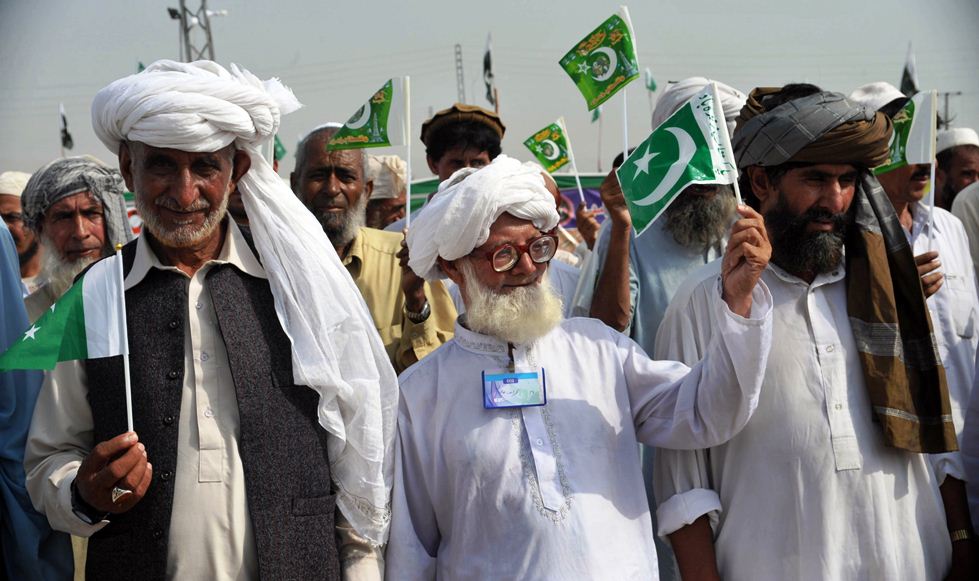
PESHAWAR/ ISLAMABAD:
A phase-wise repatriation plan for the internally displaced persons (IDPs) from Federally Administered Tribal Areas (Fata) is on the cards as the government and other stakeholders begin to carve out an all-inclusive strategy.
The move is expected to lead to reforms and open up the tantalizing possibility of the tribal areas losing their ‘special status’.
An initial draft of the Rehabilitation and Reconstruction (R&R) strategy, as viewed by The Express Tribune, shows that the first step will be to send back the internally displaced persons (IDPs) to their respective areas. However; under the present situation of law and order in different agencies, all the IDPs cannot return to their homes.
“There will be an individual mechanism for repatriation after assessment of the situation of each Fata area and based on those findings people from those areas will be sent back one by one,” revealed a senior official privy to the developments.
“The return of the IDPs and the implementation of the plan will take place between six and 24 months,” said the official, who spoke on condition of anonymity.
The Internal Displacement Monitoring Centre (IDMC) estimates that there have been around 5 million IDPs living in the north-west since 2004. As of June of 2014, there were around 1.15 million people registered as IDPs.
Experts say that the figure has swollen to more than 2 million IDPs since the launch of a renewed operation in Khyber Agency as well as extension of the Operation Zarb-e-Azb to other areas of North Waziristan.
The post-repatriation plan, outlined in an eight-page document, includes an ‘actionable and sustainable rehabilitation strategy’ which will begin collecting and assessing data of damage both physical and humanitarian.
The analytical portion questions the political and security situation in each of the tribal agency, regarding the current state of the physical infrastructure, demographic changes and other major categories that include livelihood opportunities as well as peace building and social cohesion.
At least two officials from the Fata secretariat in Peshawar confirmed that they had been asked for initial assessment of damage in their respective agencies. These assessments will be used to make a pledge to donor countries, which includes an initial amount of $100 million.
“If things go according to schedule, the meeting will be held in mid-November,” said the official, adding that the programme will be finalised till February 2015. The first phase of repatriation is expected to begin in April next year.
Meanwhile, Khyber-Pakhtunkhwa (K-P) governor on October 30 also notified a new Fata Rehabilitation and Reconstruction Unit (FRRU). “The FRRU will be run by a combination [of authorities] which includes the K-P governor, additional chief secretary Fata and law and order secretary Fata,” said another official.
Mainstreaming of Fata
The repatriation, however, is part of a larger effort to integrate Fata with the rest of the country.
Currently, Article 247 of the Constitution provides a ‘special status’ to the tribal areas, which bars the implementation of any act of parliament to the areas and also impedes the authority of the Supreme Court/high courts to the area, giving the president complete authority over the area.
While a commission has been set up to build a consensus and make a workable plan, political parties remain critical of its ability and scope.
“Ambitious plans on paper are seldom implemented,” said Senator Farhatullah Babar of the Pakistan Peoples Party. Babar recently moved a resolution in the senate to amend Article 247 so parliament can legislate for the Fata. “Resolutions are not often binding but are like moral obligation to expedite the process,” he said.
“The commission will do more harm to the cause,” said the ANP’s Central Vice President Bushra Gohar.
She stressed that it should be the political parties who should be making the decisions in line with the 18th amendment. “Parliamentary committees should be constituted to look over the developments. There needs to be more transparency,” she demanded, “if there is a plan it should be made public.”
While almost all political parties favour reforms in the tribal areas, it is unclear what the status of the area will be in the wake of reforms. “There should be a referendum as to what the people of the area want,” said Jamaat-e-Islami’s K-P chapter’s chief Professor Mohammed Ibrahim Khan.
Published in The Express Tribune, November 4th, 2014.

























































COMMENTS
Comments are moderated and generally will be posted if they are on-topic and not abusive.
For more information, please see our Comments FAQ